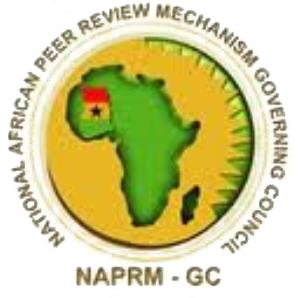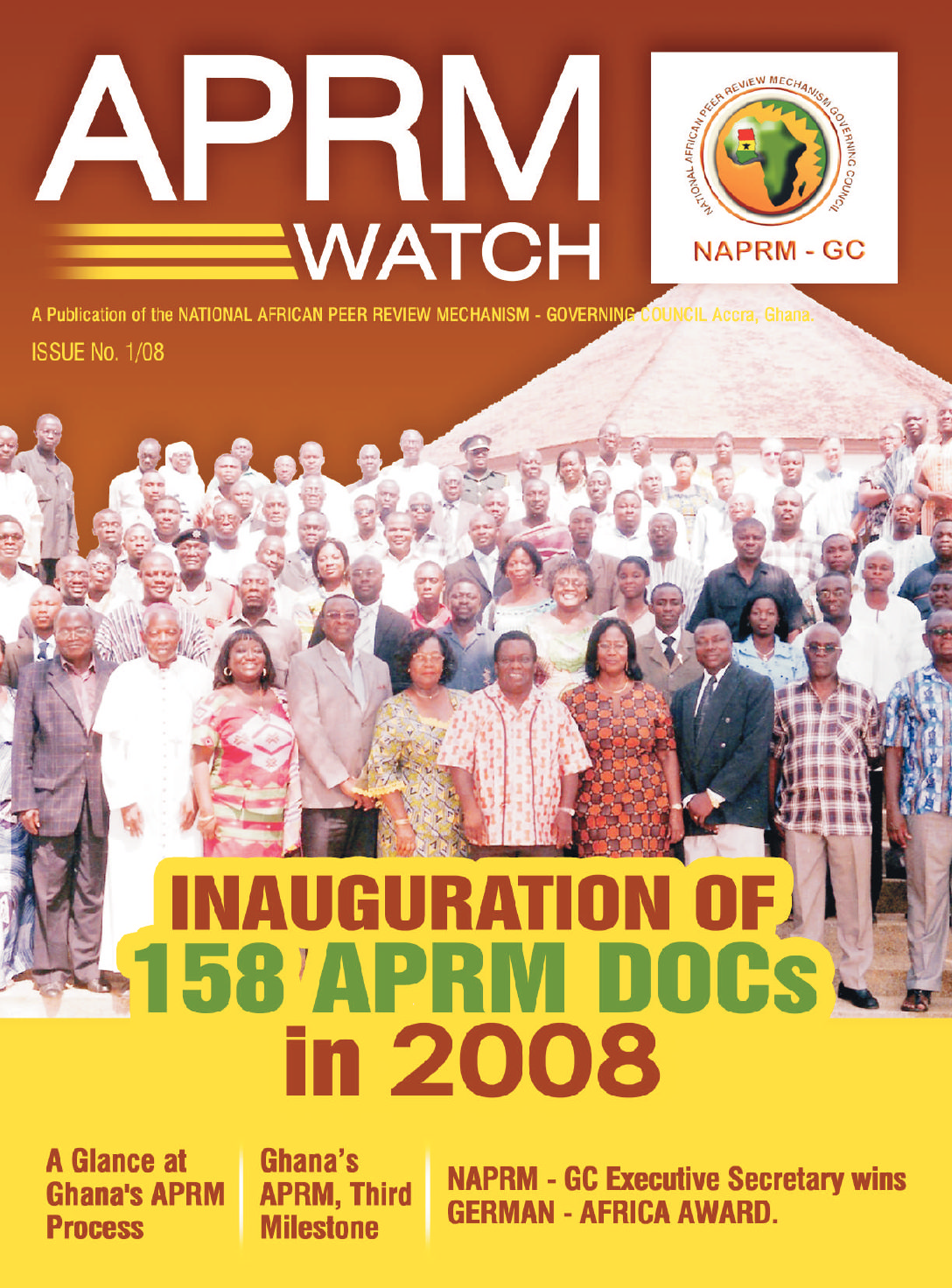Every year, the APRM District Oversight Committee members are empowered to monitor and evaluate local government activities in inaugurated districts.
This is done through the administration of a questionnaire based on the four thematic areas of the APRM Democracy and Good Political Governance, Economic Governance and Management, Corporate Governance, and Socio-economic Governance. Respondents are asked to comment on the state of development at the local level.
Everyday issues like freedom of expression and association, the performance of the economy, quality of schools, health facilities, state of feeder roads, provision of water and electricity, role of chiefs, and level of corruption in public and private institutions.
Over a one-month period, two districts each from the ten regions throughout the country undertook the survey using the citizens’ report card system where the interviewer spends time with respondents to explain and ensure that respondents provide answers from an informed position.
The Asante Akim North and Mampong Municipal Authorities carried out the survey in the Ashanti Region, Sunyani, and Nkoranza South in the Brong Ahafo Region, Kassena Nankana and Bolga Municipal in the Upper East Region, Tamale, and Walewale in the Northern Region, Wa, and Jirapa in the Upper west region, Ga West and Dangme East in Greater Accra, Akuapem North and Birim Central in the Eastern Region, Shama and Tarkwa in the Western Region, Cape Coast and Mfantsiman in the Central Region, and Kajebi in the Volta Region took part in the exercise.
The participating District Oversight Committees (DOC) had 200 questionnaires each and devised district-specific methodologies to enable them to obtain accurate results. They were to zone the districts and earmark the number of households to be interviewed. The survey teams were made of a supervisor and four data collectors.
Selected DOC members worked with respondents from age 18 to 60 years and above, the level of education was JSS, O level, commercial/vocational education, tertiary, Koranic, middle school, technical, SSS and primary education and social status, unmarried, married divorced, separated and widowed.
The survey sought to find if there have been improvements in the four basic principles of the APRM, whether people are enjoying freedoms, whether the economy is favourable, whether there are job opportunities and whether employers treat their employees well and whether there are good schools, good hospitals, good roads and road networks, water and electricity supply, provision of internet facilities and the level of corruption in both the public and private sectors.
Interestingly, many of the answers throughout the districts were the same. Specifically, respondents were in unison in answers to the most corrupt institution in the country.
Various districts were confronted with specific issues on women’s representation, child prostitution and trafficking, access to internet facilities, the role of chiefs, falling standards of education, access to transportation and quality of transportation services, accountability of public officials, and the quality of health services. After the data collection, analysis, and report writing by the DOCs, validations organized by the Governing Council Secretariat gave the rest of the communities the opportunity to listen to, discuss and input the reports presented by the DOCs.
Theme by theme, participants and other invited guests walked through the findings which generated very insightful debates. Some people disagreed with some of the findings and argued for percentages for particular issues to be increased or decreased. It was explained however that the idea is to get a true reflection of what pertains.
Governing Council members and the Executive Secretary commended both DOCs and participants in all districts for a job well done and for the useful discussions which have been documented. They said it will be used to modify the final Report.
The Executive Secretary noted that throughout the process, the beauty of people’s participation and ownership of the APRM stood out.

 newsletter-compressed
newsletter-compressed